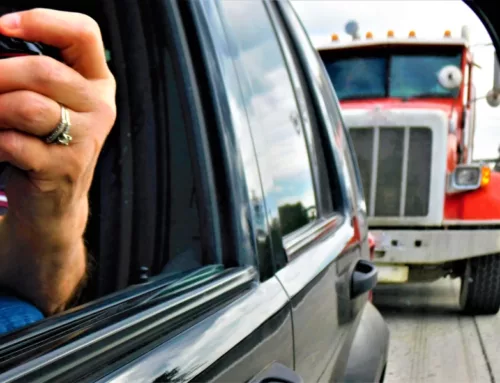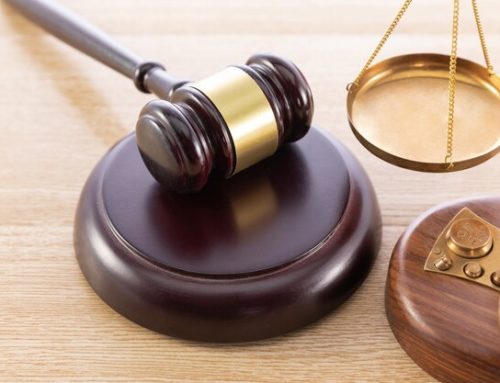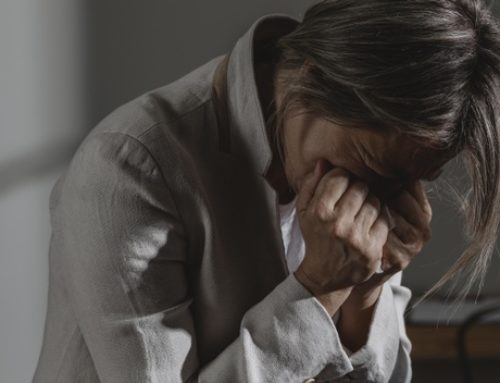Know How to Avoid Personal Liability for Business Debts
In the complex landscape of business ownership, one critical question often looms large: “Are you personally liable for business debts?” This concern is common in every entrepreneur and small business owner in Ridgeland and Gulfport, MS, where The Rollins Law Firm stands ready to provide clarity and guidance.
Short Summary:
- Understanding personal liability for business debts is necessary in the complex landscape of business ownership in Ridgeland and Gulfport, MS.
- Personal liability involves risking personal assets to cover business debts, adding complexity to entrepreneurship in terms of savings, homes, and investments.
- Key indicators in personal liability include personal guarantees for loans, co-signing contracts, commingling finances, unfulfilled tax obligations, negligence or fraud, and failure to follow legal formalities.
- Personal guarantees increase personal liability, making individuals personally responsible for business debts if the entity cannot fulfill them.
- Personal liability varies across business structures, with sole proprietorships and general partnerships having unlimited personal liability, while corporations and limited liability partnerships offer more protection.
- Chapter 7, Chapter 13, and Chapter 11 bankruptcies provide avenues to discharge or restructure debts, potentially relieving personal liability for business debts.
- A bankruptcy lawyer assesses, guides chapter selection, analyzes personal liability, aids in preparation and filing, protects personal assets, negotiates with creditors, and provides post-bankruptcy.
Navigating the world of business debts can be difficult, especially when personal liability comes into play. To clarify this topic, we will break it down into simpler terms and explore why seeking the guidance of a skilled bankruptcy attorney is crucial for safeguarding your financial interests.
What is Personal Liability in the Context of Business Debts?
At its core, personal liability means that an individual’s assets could be at risk to cover business debts. In simpler terms, if your business faces financial challenges and cannot meet its obligations, your assets—such as savings, home, or other investments—may be used to settle those debts. This potential risk adds a layer of complexity to the already intricate world of entrepreneurship.
How Do I Know If I Am Personally Liable for Business Debts?
Answering the question “Are you personally liable for business debts?” involves considering various factors related to your business structure, contractual agreements, and financial practices. Here are key indicators that you may be personally liable:
- Personal Guarantees: If you guarantee a business loan or credit, you are explicitly taking on personal liability for that debt. Lenders often require personal guarantees, especially for small businesses or startups.
- Co-Signing Contracts: Co-signing a business contract or lease agreement with your personal information may make you personally responsible for fulfilling the terms of that contract.
- Commingling of Finances: Mixing personal and business finances can blur liability. Maintaining separate bank accounts and financial records can strengthen the distinction between personal and business liabilities.
- Unfulfilled Tax Obligations: If your business fails to meet its tax obligations, tax authorities may hold you personally liable for unpaid taxes, particularly in sole proprietorships and partnerships.
- Negligence or Fraud: Engaging in fraudulent activities or displaying negligence that harms others can result in personal liability, regardless of your business structure.
- Failure to Follow Legal Formalities: Neglecting corporate formalities, such as holding regular meetings or maintaining proper records, may undermine the limited liability protections provided by specific business structures.
Understanding the factors contributing to personal liability is essential to making informed decisions as a business owner.
What is a Personal Guarantee?
A personal guarantee is a legal contract by an individual to take responsibility for a debt or obligation if the business entity cannot fulfill it. Essentially, it is a pledge making the individual personally liable for the debt, even if the business itself is a separate legal entity.
In short, while a personal guarantee can be beneficial to secure business financing, it increases personal liability considerably. It is advisable to seek legal advice before signing any personal guarantee.
How Does Personal Liability Work in Different Business Structures?
Personal liability varies significantly depending on the chosen business structure. Here is a breakdown of how personal liability works in different business structures:
- Sole Proprietorship: In this structure, the owner has personal liability as there is no legal separation between business and personal assets, risking personal savings and property to cover business debts.
- General Partnership: Similar to a sole proprietorship, general partners share personal liability, and each partner’s assets can be used to satisfy business debts.
- Limited Partnership (LP): Limited partners have liability limited to their investment, while general partners maintain unlimited personal liability. Limited partners risk losing invested capital but are shielded from additional personal liability.
- Limited Liability Company (LLC): LLCs have a separation between personal and business liabilities, offering members limited personal liability. However, personal guarantees or inadequate maintenance may lead to personal liability.
- Corporation: Shareholders generally have limited personal liability, protected by the corporate structure. However, personal guarantees, co-signing, or actions piercing the corporate veil can expose shareholders to personal liability.
- Limited Liability Partnership (LLP): LLPs offer limited personal liability to all partners, shielding them from the actions of others. Personal assets are generally protected, but personal guarantees can impact liability.
- Professional Corporation (PC): Professional corporations provide limited personal liability to shareholders for professional malpractice claims against other shareholders. While personal assets are generally protected from business debts, individual professionals may still be personally liable for their professional actions.
Understanding the implications of personal liability in different business structures is critical when choosing the most suitable option for your needs.
How Do I Get Rid of Personal Liability for Business Debts?
Bankruptcy can provide a legal process for individuals and businesses to discharge or restructure their debts, potentially relieving personal liability for business debts. We list below how bankruptcy can help:
- Chapter 7 Bankruptcy: Chapter 7 bankruptcy involves liquidation, where non-exempt assets are sold to pay off creditors, potentially eliminating personal liability for certain unsecured business debts.
- Chapter 13 Bankruptcy: Chapter 13 bankruptcy allows debtors to create a repayment plan over three to five years, reducing immediate financial burdens, although personal liability may not be eliminated.
- Business Bankruptcy (Chapter 11): Filing for Chapter 11 enables the reorganization and restructuring of a business’s debts, preventing direct discharge of personal liability but protecting personal assets from creditor pursuit.
- Automatic Stay: An automatic stay halts collection actions upon filing for bankruptcy, offering debtors breathing room and protecting personal assets from immediate creditor actions.
- Discharge of Personal Guarantees: Bankruptcy may discharge personal guarantees for business loans or contracts, freeing individuals from personal liability.
- Exemptions and Protections: Bankruptcy laws provide exemptions safeguarding certain assets from liquidation, which protect personal assets from being used to satisfy business debts.
Remember that the specific impact of bankruptcy on personal liability depends on factors such as the type of bankruptcy filed, the nature of the debts, and the individual’s or business’s financial situation.
How Can a Bankruptcy Lawyer Assist Me?
A bankruptcy lawyer can play a valuable role in helping you navigate the complexities of bankruptcy and seeking relief from personal liability for business debts. A bankruptcy lawyer can assist you in the following ways:
- A bankruptcy lawyer can assess your financial situation, business structure, and debts to determine the most suitable bankruptcy option.
- Depending on your circumstances, they can guide you in selecting the appropriate bankruptcy chapter (Chapter 7, Chapter 13, or Chapter 11) to address personal liability concerns.
- A bankruptcy lawyer can conduct a detailed analysis of personal guarantees and obligations, working to develop strategies to eliminate these liabilities through the bankruptcy process.
- A bankruptcy attorney can assist in preparing and filing necessary documents and ensure accuracy and compliance with bankruptcy laws during the extensive paperwork and legal processes.
- A lawyer can work to protect your assets from liquidation, leveraging exemptions and legal strategies to safeguard your home, savings, and other valuable assets.
- Negotiating with creditors, a bankruptcy lawyer seeks agreements to reduce or eliminate certain debts, including settlements or restructuring repayment plans within the bankruptcy proceedings.
- An attorney works toward discharging personal guarantees for business loans or contracts, relieving you from personal liability.
- Representing you in court proceedings, a bankruptcy lawyer advocates for your interests, ensuring a smooth bankruptcy process and addressing any challenges.
- Ensuring the enforcement of the automatic stay, an attorney prevents creditors from taking further collection actions, including lawsuits, garnishments, or attempts to seize assets.
- After bankruptcy, a lawyer guides rebuilding credit, managing financial responsibilities, and navigating the post-bankruptcy period for a fresh financial start.
Give Our Bankruptcy Lawyers a Call Today!
“Are you personally liable for business debts?” This question may linger, but you can face it confidently with the proper legal guidance. The Rollins Law Firm is not just a legal service; we are your partners in ensuring the longevity and success of your business in Ridgeland and Gulfport, MS. Do not navigate the complexities of personal liability alone—let our experienced team be your beacon of legal service and protection.
Give our firm a call today and get a free consultation!








Connect with Us